 Your new post is loading...
 Your new post is loading...

|
Scooped by
Gust MEES
September 15, 2018 8:36 AM
|
LARI – the Luxembourg Agency for Research Integrity.
Established in 2016, the Luxembourg Agency for Research Integrity (LARI) is the national agency promoting and investigating research integrity in Luxembourg. LARI, a non-profit organization, is a joint venture between the Luxembourg National Research Fund (FNR), the University of Luxembourg, the Luxembourg Institute of Health (LIH), the Luxembourg Institute for Socio-Economic Research (LISER) and the Luxembourg Institute of Science and Technology (LIST). As such, LARI intersects with a variety of research disciplines including medicine, behavioural and social sciences, physical sciences and mathematics, engineering and materials sciences, law, and computing.
The mission of LARI is twofold:
To promote responsible conduct of research;
To ensure an independent inquiry and investigation in cases of alleged scientific misconduct.
How does LARI accomplish its mission? The LARI team uses an innovative approach that blends education, coaching and creative sessions to foster research integrity as a value that is built into research (proactive).
LARI is the go-to organization for questions about research ethics, research integrity, and allegations of research misconduct.
Learn more / En savoir plus / Mehr erfahren: https://www.scoop.it/t/luxembourg-europe/?&tag=Research

|
Scooped by
Gust MEES
September 5, 2018 12:02 PM
|
Nächster Schritt im Raumfahrtprogramm: Das Wirtschaftsministerium des Großherzogtums und der Nationale Forschungsfonds (FNR) haben eine gemeinsame Vereinbarung unterzeichnet. Das teilt die Regierung in einem Communiqué am Mittwoch mit. Das Papier sieht vor, ein Programm zur Unterstützung der Forschung für die kommerzielle Raumfahrtindustrie in Luxemburg zu entwickeln.
Das «Space Research Program» soll die öffentlichen Forschungseinrichtungen und in Luxemburg ansässige Unternehmen dabei unterstützen, künftig enger zusammenzuarbeiten. So sollen Spitzenkräfte gefördert und nach Luxemburg geholt werden, die nachhaltige Beiträge zur luxemburgischen Raumfahrtindustrie leisten. Neben dem Luxemburger Raumfahrtfonds sei die Umsetzung des «Space Research Program» ein wesentlicher Bestandteil der Gründung der Luxemburger Raumfahrtagentur («Luxembourg Space Agency»), die am 12. September offiziell den Betrieb aufnimmt. Learn more / En savoir plus / Mehr erfahren: https://www.scoop.it/t/luxembourg-europe/?&tag=Space

|
Scooped by
Gust MEES
July 6, 2018 11:35 AM
|
Graduates and researchers from outside of the EU will be able to remain in the country up to nine months after their course or projects have finished, under a proposed new law.
Bill 7188 aims to provide a legal framework in Luxembourg for a European directive on the conditions of entry and residence of third-country nationals.
Under the proposal, people coming to Luxembourg for research and studies could legally remain in the country for up to nine months after the end of their work or studies in order to find a job or start a business.
Luxembourg will create a new residence permit category for people in such a position. Graduates and researchers would have freedom of movement between EU member states during this period. Those spending time in another member state for multilateral programmes, such as Erasmus, would not need a residence permit. And researchers would be able to spend longer periods in another member state, up to 180 days out of 360.
The directive on which the law is based also pushes the number of hours a student could work during their studies up to 15 hours per week. Learn more / En savoir plus / Mehr erfahren: https://www.scoop.it/t/luxembourg-europe/?&tag=Research

|
Scooped by
Gust MEES
June 1, 2018 9:13 AM
|
Das Gute an einem Reifen ist, dass man damit sowohl vorwärts als auch rückwärts fahren kann. Forschern wie Laurent Poorters reicht das aber nicht aus.
Man muss das Rad nicht unbedingt neu erfinden. Nun, das Rad vielleicht nicht. Dafür aber den Reifen. Denn was bringen ein noch so leistungsstarker Motor oder ein intelligentes Fahrwerk, wenn der Reifen am Ende völlig überfordert ist. Als die Komponente, die für die Verbindung zwischen Auto und Straße sorgt, hat der Reifen eine ganz entscheidende Funktion. Und mit der kennt sich Laurent Poorters besonders aus.
Poorters arbeitet als Ingenieur im Goodyear Innovation Center in Colmar-Berg und beschäftigt sich dort mit der Entwicklung neuer Reifen. Und was das betrifft, so müssen Autofahrer ihre bisherige Vorstellung davon, wie ein Reifen im Wesentlichen aussieht und was er leisten kann, vielleicht noch einmal überdenken. Denn bei Goodyear werden auch Konzeptreifen mit künstlicher Intelligenz entwickelt. Learn more / En savoir plus / Mehr erfahren: https://www.scoop.it/t/luxembourg-europe/?&tag=Research

|
Scooped by
Gust MEES
May 18, 2018 12:30 PM
|
Le Luxembourg, centre mondial de l'innovation?
LUXEMBOURG - Belval doit devenir la Silicon Valley européenne. Le Fonds national de la recherche a présenté vendredi son bilan pour 2017 et ses ambitions pour l'avenir.
La «Maison du Savoir» est le cœur du parc scientifique d'Esch-Belval. Le FNR y est désormais aussi logé, avec l'administration de l'Uni. (photo: Editpress/Fabrizio Pizzolante)
Le Luxembourg doit devenir la première destination des chercheurs dans les prochaines années. Le Fonds national de recherche (FNR) reçoit davantage de fonds pour cet objectif: entre 2018 et 2021, le financement du FNR par l'État s'élève à 341 millions d'euros, contre 100 millions d'euros pour les quatre années précédentes.
En 2017, le FNR a distribué 66,2 millions d'euros pour 240 projets. Les bourses de recherche ont bénéficié aux scientifiques de l'Université de Luxembourg et à d'autres organismes de recherhce comme le List, le LIH, le LISER ou encore le Centre hospitalier de Luxembourg. Doctorants et post-docs sont également soutenus.
Learn more / En savoir plus / Mehr erfahren: https://www.scoop.it/t/luxembourg-europe/?&tag=Research

|
Scooped by
Gust MEES
April 26, 2018 3:13 PM
|
Jean-Sébastien Coron, Associate Professor in cryptography at the University of Luxembourg, has been awarded the prestigious “Advanced Grant” by the European Research Council (ERC). Funded by the European programme Horizon 2020, Jean-Sébastien Coron and his team will receive up to € 2.5 million over a period of five years to conduct research in cryptography at the University’s Interdisciplinary Centre for Security, Reliability and Trust (SnT).
The ERC Advanced Grant is the most prestigious individual research grant in Europe and already the third to be awarded to a SnT affiliated researcher.
Emergence of new encryption tools
During the past thirty years, cryptography has become more and more common in all areas of life, from the Internet to voting or banking systems. Two promising techniques have recently emerged to reinforce the privacy and security of citizens and organisations. On the one hand, homomorphic cryptography is a mathematical tool which enables work on encrypted data without decrypting it. For instance, companies could encrypt their cloud-hosted databases and operate on them without converting records back to plaintext. On the other hand, cryptographic multilinear maps have revolutionised the domain with the emergence of indistinguishability obfuscation (iO), a cutting-edge method that conceals a programme’s code but preserves its functionality.
“Despite these advances, the security of multilinear maps is still poorly understood and many iO schemes have been broken. Moreover, all constructions of iO are currently impractical: obfuscating a program adds huge delays, effectively slowing down running times,” observes Professor Jean-Sébastien Coron.
As leader of the Applied Crypto Group (ACG) at the Computer Science and Communications (CSC) research unit of the Faculty of Science, Technology and Communication, Prof Coron will therefore investigate combining these two methods to find the best solution. Learn more / En savoir plus / Mehr erfahren: https://www.scoop.it/t/luxembourg-europe/?&tag=University+Luxembourg https://www.scoop.it/t/luxembourg-europe/?&tag=ERC

|
Scooped by
Gust MEES
April 4, 2018 11:52 AM
|
"CHERCHEURS A L'ECOLE": PROMOTING EXCHANGE BETWEEN RESEARCHERS AND SOCIETY - PUBLISHED ON 29/03/2018
From 19 to 23 March 2018, the Luxembourg Institute of Science and Technology (LIST) participated in the 8th edition of Chercheurs à l’école organised by the Luxembourg National Research Fund (FNR).
Chercheurs à l'école 2018 clearly fulfilled its objective of introducing young people to the profession of researcher that many know little about. With 124 Luxembourg researchers, 75 delivered sessions within 28 different secondary schools across Luxembourg, it was the largest participation yet: congratulations to all researchers and schools taking part in this inspiring FNR initiative.
“We walked around 40 very interested students through our academic background, as well as our interdisciplinary activities in the field of research and development, conveying and discussing advice, motivation and experiences. It is an enriching and motivating event for the students, as well as for the scientists and it is always a lot of fun every year.” highlighted Dr Christian Penny, Research and Technology Associate in Microbiology at LIST, to the event organiser (Source: www.fnr.lu).
Alongside their counterparts from both public and private sectors, more than 20 LIST PhD candidates, postdoctoral and experienced researchers, specialised in the environmental, IT and materials research domains, shared their personal stories and passion for science and presented their work to the young audience. What an enriching experience!
CONTRIBUTING TO A BETTER FUTURE INTO THE SCIENTIFIC WORLD
Chercheurs à l’école was a perfect opportunity for LIST and its researchers to join the community and share their passion and experience with the younger generation. In this context, the institute supports the FNR in the national initiative aiming at promoting exchange between researchers and society.
The next event organised by the FNR are the Researchers Days to be held on Friday, 30th November and Saturday, 1st December 2018 at the Rockhal venue. LIST will be part of this 2018 edition which is going to be fun and challenging at the heart of the Belval Innovation Campus. Various hands-on science workshops are currently being identified within LIST research teams. Learn more / En savoir plus / Mehr erfahren: https://www.scoop.it/t/luxembourg-europe/?&tag=Education

|
Scooped by
Gust MEES
March 18, 2018 5:21 PM
|
The Researchers’ Days will return for its 6th edition on Friday, 30 November and Saturday, 1 December 2018 at the Rockhal in Esch/Belval. Proposals for workshops and Science Cafés are now being accepted by the Fonds National de la Recherche, deadline to submit is Friday, 13 April 2018.
Don’t miss the chance to interact and motivate future generations of scientists and share the passion that got you into research by offering them a hands-on science workshop or a Science Café!
The event fosters the direct exchange between researchers and the public by offering researchers multiple ways to demonstrate their fields of science in a fun way.
Want to find out what it's like? Here is a link to a video of the 2014 event on the science.lu YouTube channel and a news article with photos on the FNR website. Learn more / En savoir plus / Mehr erfahren: https://www.scoop.it/t/luxembourg-europe/?&tag=Science https://www.scoop.it/t/luxembourg-europe/?&tag=STEM

|
Scooped by
Gust MEES
March 2, 2018 11:05 AM
|
Le List vient de placer sur les rails Lion Nano-Systems, une spin-off chargée de commercialiser un outil d’exploration de l’infiniment petit développé par l’institut de recherche luxembourgeois.
Luxembourg Ion Optical Nano-Systems sàrl (Lion Nano-Systems), une spin-off créée en août 2017 avec le soutien du Luxembourg Institute of Science and Technology (List), volera désormais de ses propres ailes dans les locaux du Technoport.
Son objectif sera désormais de commercialiser le Vector 500 Sims, un outil développé au sein du List pour explorer l’infiniment petit, dont elle détient la licence commerciale après le dépôt de plusieurs brevets par le List.
Ce nouvel outil, qui combine microscope puissant et instrument d’imagerie à spectrométrie de masse à ions secondaires, permet l’analyse de surfaces avec une résolution autour de 10 nanomètres, c’est-à-dire des surfaces jusqu’à 10.000 fois plus petites que le diamètre d’un cheveu humain. Selon le List, le Vector 500 Sims se révèle ainsi être l’outil le plus performant sur le marché pour des applications de recherche et développement dans des domaines aussi variés que les études toxicologiques sur les nanoparticules, le photovoltaïque, les semi-conducteurs, les batteries Li-ion, les aciers, la cosmétique et la médecine. Learn more / En savoir plus / Mehr erfahren: https://www.scoop.it/t/luxembourg-europe/?&tag=LIST https://www.scoop.it/t/luxembourg-europe/?&tag=Nano

|
Scooped by
Gust MEES
February 20, 2018 11:37 AM
|

|
Scooped by
Gust MEES
January 19, 2018 1:04 PM
|

|
Scooped by
Gust MEES
January 18, 2018 6:45 AM
|
Researchers from the University of Luxembourg found a new biomarker for colorectal cancer (CRC) that might improve therapy and survival rates of patients.
Biomarkers are measurable biological indicators for a specific disease, such as changes in the amounts of certain proteins that occur in combination with certain illnesses. Such biomarkers help physicians to diagnose a condition, identify the disease stage, and determine a patient’s risk for recurrence of the disease. This supports the doctor in choosing the best-fitting treatment plan.
Improved early diagnosis
For CRC, early detection and classification is especially important, as, for example, not all Stage II patients benefit from chemotherapy. Especially identifying patients at risk for recurrence during the early course of the disease might help clinicians. However, there are still too few prognostic markers for CRC known so that too many patients still suffer needlessly from side effects of the chemotherapy without having real benefits. Learn more / En savoir plus / Mehr erfahren: https://www.scoop.it/t/luxembourg-europe/?&tag=University+Luxembourg https://www.scoop.it/t/luxembourg-europe/?&tag=Cancer

|
Scooped by
Gust MEES
January 17, 2018 11:55 AM
|
Die von Wirtschaftsminister Etienne Schneider gestartete Weltrauminitiative zieht immer weitere Kreise.
Zu den sieben neuen Weltraum-Unternehmen die in den letzten Monaten nach Luxemburg gekommen sind, wird noch ein reines Weltraum-Forschungslabor (“deep-space lab”) hinzukommen. Aufgebaut wird das Labor, das Anfangs mit fünf Forschern ausgestattet wird vom führenden chinesischen Weltraumforschungsinstitut National Space Science Center (NSSC).
Abkommen mit dem Wirtschaftsministerium
Ein diesbezügliches Kooperations-Abkommen sei mit dem Luxemburger Wirtschaftsministerium unterzeichnet worden. Das berichtet die Nachrichtenagentur Xinhua, unter Berufung auf eine Pressemitteilung von NSSC und der “Chinese Academy of Sciences” . Derzeit befindet sich Wirtschaftsminister Schneider auf Mission in China.
Im Labor sollen unter anderem Proben von Materialien aus dem Weltraum untersucht werden. Zudem soll an neuen Technologien im Bereich “Bergbau im Weltall” geforscht werden, so Xinhua weiter.
Erst seit kurzem ist Ji Wu, Chef-Wissenschaftler im Bereich Weltraumforschung bei der “Chinese Academy of Sciences” auch Mitglied im Beratungsgremium von Space-Resources.
In dem Gremium sind beispielsweise auch Pete Worden, der ehemalige Geschäftsführer des Nasa-Ames-Forschungszentrums, und Jean-Jacques Dordain, der ehemalige Geschäftsführer von Europas Weltraumagentur ESA, tätig. Learn more / En savoir plus / Mehr erfahren: https://www.scoop.it/t/luxembourg-europe/?&tag=Space
|

|
Scooped by
Gust MEES
September 14, 2018 8:20 AM
|
Luxembourg is to host three research laboratories for the development of artificial intelligence (AI) after the Luxembourg House of Financial Technology (LHoFT) struck a deal with Chinese AI company DeepBlue Technology.
DeepBlue, which uses AI to provide autonomous services for retailers, will also work with the local operations of PwC and KPMG, marketing agency Farvest and ICT services company Telindus.
It will look to expand its presence in the European market and develop a new AI algorithm.
Through the agreement, the parties seeks to position Luxembourg and China at the forefront of AI R&D on a global scale.
DeepBlue, founded in 2014, has developed an AI system named quiXmart for 'smart' stores, where shoppers can make cashless and cardless purchases, using their palms to pay.
The Shanghai-based company has also signed an agreement with the Luxembourg National Laboratory to create a platform where Chinese experts can collaborate with the European manufacturing sector and partner up with Fortune 500 companies. Learn more / En savoir plus / Mehr erfahren: https://www.scoop.it/t/luxembourg-europe/?&tag=AI https://www.scoop.it/t/luxembourg-europe/?&tag=LHoFT https://www.scoop.it/t/luxembourg-europe/?&tag=Research https://www.scoop.it/t/luxembourg-europe/?&tag=China

|
Scooped by
Gust MEES
July 6, 2018 1:11 PM
|
TITANIUM DIOXIDE DEPOSITION ON CONSUMER TECHNICAL PRODUCTS
With the PLASMONWIRE project "Atmospheric pressure PLASMA deposition of PLASMONIC coatings ON a WIRE substrate", funded by the Luxembourg National Research Fund, researchers at the Luxembourg Institute of Science and Technology (LIST) have been working for three years on the synthesis at atmospheric pressure of functional titanium dioxide (TiO2) deposits. This chemical compound, which is widely used in powder form in the cosmetics, food and even chemistry sectors, can be used for other applications if it is synthesised in the form of a deposit on a functional part. Some techniques are already in use, but they require the part to be coated to be heated above 150°C and nanoparticles to be handled in order to achieve spiking. Moreover, they cannot always be industrialised because they are not productive enough given their low rates of deposition.
DEPOSITION OF TIO2 IN ONE SINGLE STAGE
With PLASMONWIRE, which has now come to an end, specialist process engineering and prototyping researchers were able to develop a chemical synthesis method that is capable of producing deposits of TiO2 in one single step, which in turn could be spiked by various other chemical elements. This method, which is carried out using plasma under atmospheric pressure, can produce layers about 100 nanometres thick with nanometric grain sizes and anatase-like crystallographic structures. These functional deposits can be carried out on heat-sensitive substrates such as polymers, with very fast rates of deposition.
A demonstrator has been developed to continuously coat optical fibres with a photocatalytic film that is active in a wide wavelength range as a result of the spiking. It is therefore now possible to consider treating liquid or gaseous media in environments that are not open to external lighting.
A POSSIBLE APPLICATION FOR WATER DECONTAMINATION
During the project, a possible application of the coated material for use in water decontamination was carried out in partnership with LIST researchers specialising in environmental innovation. Together, they were able to establish degradation kinetics for water polluted by an antibiotic (sulfamethoxazole) as a function of the active surface of various spiked nanocomposite TiO2 deposits.
Finally, this project enabled the team to produce 7 scientific publications, 2 registered patents, and a thesis conducted in partnership with University College London (UCL). Learn more / En savoir plus / Mehr erfahren: https://www.scoop.it/t/luxembourg-europe/?&tag=Research https://www.scoop.it/t/luxembourg-europe/?&tag=LIST

|
Scooped by
Gust MEES
June 22, 2018 4:45 PM
|
Luxembourg, for the first time, ranks among the “Innovation Leaders”, alongside countries like Switzerland, Sweden, The Netherlands and the United Kingdom in the European Commission’s 2018 European Innovation Scoreboard. This is a huge leap for the young Luxembourgish research and innovation ecosystem, and an important recognition of the country’s continuous efforts to develop a world-class R&I landscape.
Considerable progress has been made in Luxembourg by successive governments leading to a doubling of investments in research, development and innovation in the last decade. The report, published today (22 June), states that “Attractive research systems and intellectual assets are [Luxembourg’s] strongest innovation dimension”.
The Luxembourg National Research Fund (FNR) has been one of the key drivers to establish Luxembourg as a leading knowledge-based society through science, research and innovation. Our unrelenting efforts to setup a world-class public research system that generates societal and economic impact in key strategic areas are bearing fruit. Learn more / En savoir plus / Mehr erfahren: https://www.scoop.it/t/luxembourg-europe/?&tag=FNR https://www.scoop.it/t/luxembourg-europe/?&tag=Innovation https://www.scoop.it/t/luxembourg-europe/?&tag=Research

|
Scooped by
Gust MEES
May 28, 2018 11:06 AM
|
2017 was a great year for research in Luxembourg, with the country continuing to consolidate its international reputation in the field.
As he presented the latest annual report last week, Marc Schiltz, Secretary General of the Luxembourg National Research Fund (FNR), expressed his satisfaction at the research projects that were funded and completed last year. The FNR's objective is clear: to position Luxembourg as an international centre of expertise in the field of research.
Providing the resources needed
Some 666 projects were submitted to the FNR in 2017. Just 240 were selected for funding, complying with the criteria of excellence applied by the FNR since it was set up in 1999. These projects will receive €66 million in funding from the government and European Commission budgets.
Looking to the future
The FNR is keen to strengthen its role in creating links between society and the seemingly closed world of science, by organising fun events such as the Science Festival and other outreach initiatives. It also wants to align its priorities with Luxembourg's plans for strategic development. These are some of the key points mentioned in the FNR's new 2018-21 strategic plan. Particular priorities include research related to the digital transformation and industry-based research.
At the forefront
The FNR's ambition is to make Luxembourg a vital partner in the most innovative research. The focus is not on competition but rather on high-level partnerships. The FNR has concluded bilateral agreements with 13 countries and has also joined several international networks, resulting in close collaboration with 35 countries. The key word is innovation. There is no reason why the latest discoveries related to both research and cutting-edge technology shouldn't happen in Luxembourg – especially since the FNR, together with its partners including the University of Luxembourg, has created a favourable environment that has attracted many leading researchers over the years. Learn more / En savoir plus / Mehr erfahren: https://www.scoop.it/t/luxembourg-europe/?&tag=FNR

|
Scooped by
Gust MEES
May 18, 2018 12:25 PM
|
Luxemburg soll in den nächsten Jahren zur ersten Adresse für Forscher werden. Der nationale Forschungsfonds FNR bekommt dafür bedeutend mehr Mittel zur Verfügung gestellt: Für den Zeitraum zwischen 2018 und 2021 wächst der finanzielle Spielraum der staatlichen Fördereinrichtung auf 341 Millionen Euro – in den vier Jahren davor waren es rund 100 Millionen Euro weniger.
2017 hat der FNR 66,2 Millionen Euro für 240 Projekte bewilligt. Die Forschungshilfen kommen Wissenschaftlern an der Universität Luxemburg und anderen öffentlichen Forschungseinrichtungen wie dem List, LIH, LNS, Liser oder dem Centre Hospitalier de Luxembourg zugute. Auch Doktoranden und Post-Docs werden unterstützt. Learn more / En savoir plus / Mehr erfahren: https://www.scoop.it/t/luxembourg-europe/?&tag=Research

|
Scooped by
Gust MEES
April 25, 2018 3:09 PM
|
Paul Wilmes’ original background is in Environmental Sciences, but with his FNR ATTRACT Fellowship and move from the United States to Luxembourg in 2010, the Luxembourg national branched out into biomedicine. We spoke to the prolific scientist about his ‘gut-on-a-chip’ model, the importance of carving out research niches, his goals and recent parental leave period. Learn more / En savoir plus / Mehr erfahren: https://www.scoop.it/t/luxembourg-europe/?&tag=FNR

|
Scooped by
Gust MEES
April 2, 2018 11:43 AM
|
CHERCHEURS À L’ÉCOLE 2018: MORE RESEARCHERS THAN EVER GO BACK TO SCHOOL!
From Monday 19 to Friday, 23 March 2018, the FNR organised the 8th edition of Chercheurs à l’école – with more researchers and schools taking part than ever before.
The aim of Chercheurs à l’école is to introduce young people to a profession that many know little about. Researchers from public institutions and private companies in Luxembourg tell their personal story: from school to university to their current job.
This enables students to gain insights into researchers’ professional lives and to ask questions about research in Luxembourg. The researchers also get a platform to present their work to a young audience and receive direct feedback.
Largest participation yet
The campaign has been growing, with the number of participants increasing year by year. This year, 124 researchers delivered sessions to 75 classes in a total of 28 different secondary schools across Luxembourg. In 2017, 111 researchers, 66 classes and 26 schools took part.
“We walked around 40 very interested students through our academic background, as well as our interdisciplinary activities in the field of research and development, conveying and discussing advice, motivation and experiences. It is an enriching and motivating event for the students, as well as for the scientists and it is always a lot of fun every year.” – Dr Christian Penny, Luxembourg Institute of Science and Technology (LIST)
For Laurent Poorters, developer of the Innovation Center at Goodyear, Chercheurs à l’école is about eliminating prejudices, for example:
“Many students still believe that the choice of their academic subjects limits their future career opportunities. However, this is by no means the case, as I myself can testify. Furthermore, hardly anyone knows the variety of research areas that Luxembourg already has to offer, be it at the university, in public institutions, or in industry. Goodyear in Colmar-Berg alone employs more than 1,000 engineers to advance tire development. Learn more / En savoir plus / Mehr erfahren: https://www.scoop.it/t/luxembourg-europe/?&tag=Education

|
Scooped by
Gust MEES
March 15, 2018 7:55 PM
|
Researchers from the University of Luxembourg and the Centre for European Economic Research (ZEW), Mannheim, have conducted a study on scientific misconduct and its effects on prior collaborators.
The researchers involved in the study “Guilt by Association: How Scientific Misconduct Harms Prior Collaborators” have warned that scientists should choose their associates carefully, since future misconduct by colleagues could seriously impact the reputation of their former collaborators.
While there has always been anecdotal evidence of this being the case, the study by Professor Katrin Hussinger (University of Luxembourg) and Dr Maikel Pellens (ZEW, Mannheim and KU Leuven, Belgium) now provides empirical evidence. “Guilt by Association: How Scientific Misconduct Harms Prior Collaborators” was based on the U.S. Office of Research Integrity’s 1993 to 2008 misconduct filings. A group of 856 prior research collaborators of the fraudulent scientists was identified by using publication records dating back five years before the case of misconduct. Only cases where a retraction or correction of the research processed for scientific misconduct was published were taken into account. Learn more / En savoir plus / Mehr erfahren: https://www.scoop.it/t/luxembourg-europe/?&tag=University+Luxembourg

|
Scooped by
Gust MEES
March 2, 2018 3:58 AM
|
Materialchemiker Dr. Paul Gratia über das Potenzial von Perowskit.
Die Solarzellen der Zukunft kommen aus dem Drucker und werden so flexibel sein, dass sie quasi überall eingesetzt werden können. Davon ist jedenfalls Paul Gratia überzeugt. Für den Materialchemiker, der an der renommierten schweizerischen „Ecole Polytechnique Fédérale de Lausanne“ (EPFL) promovierte und nun am „Luxembourg Institute of Science and Technology (LIST)“ forscht, könnte die Anwendung von Perowskit eine entscheidende Wende bringen.
Herr Gratia, was ist Perowskit?
Paul Gratia Eigentlich muss man von Perowskiten sprechen. Das ist eine große Mineralienfamilie, die in der Natur relativ häufig vorkommt. So besteht zum Beispiel der untere Erdmantel hauptsächlich aus Perowskit. Die Halbleiterfähighkeit einiger Perowskite ist seit Jahrzehnten bekannt und deshalb werden sie bereits in zahlreichen Elektrokomponenten eingesetzt.
Vor ein paar Jahren wurden vielversprechende neue hybride Perowskite im Labor entwickelt. Diese besitzen darüber hinaus sehr interessante photovoltaische Eigenschaften, die man sich zum Beispiel in Solarzellen oder LED’s zu Nutze machen kann. Man kann sie ganz einfach in einem Lösungsmittel auflösen und so mit Hilfe eines Druckers, ähnlich wie eine Zeitung, in extrem dünnen Schichten auf ein Plastik Substrat auftragen.
Da die Perowskit-Solarzellen sehr einfach herzustellen und somit billig sind, ist es sehr wichtig und interessant, ihre Eigenschaften näher zu erforschen.
Learn more / En savoir plus / Mehr erfahren: https://www.scoop.it/t/luxembourg-europe/?&tag=LIST https://www.scoop.it/t/luxembourg-europe/?&tag=Research

|
Scooped by
Gust MEES
February 20, 2018 11:33 AM
|
An international research consortium has developed, with significant involvement of Luxembourg Centre for Systems Biomedicine (LCSB) scientists, the first computer model to include 3D in the representation of human metabolic processes.
To this end, the researchers integrated the three-dimensional structures of over 4,000 metabolic products, or metabolites as they are known, and nearly 13,000 proteins into an existing computer model. They also added an enormous volume of genetic and chemical information to the model on which the simulation runs. The name of this new computer-based tool, which has been made available to the biomedical research community recently, is Recon3D. The researchers’ results on Recon3D appear in the journal Nature Biotechnology (doi:10.1038/nbt.4072).
Recon3D is available at vmh.live, Virtual Metabolic Human database.
The importance of scientific computer models continues to increase. They make the existing knowledge tangible and thereby help scientists to accurately formulate and work on targeted problems in research. To create such models, researchers analyse all the publications and databases they can find on a topic and feed this information into their model.
Learn more / En savoir plus / Mehr erfahren: https://www.scoop.it/t/luxembourg-europe/?&tag=University+Luxembourg https://vmh.uni.lu/

|
Scooped by
Gust MEES
January 18, 2018 7:37 AM
|
Le vice-Premier ministre et ministre de l’Économie vient de signer deux accords de coopération entre le Luxembourg et la République populaire de Chine.
Le ministère de l’Économie était resté assez discret sur le déroulement de la visite de travail de deux jours d’Étienne Schneider à Pékin lundi et mardi. On comprend mieux pourquoi en parcourant le communiqué publié mercredi matin: le n°2 du gouvernement a franchi une étape-clé dans le développement de l’industrie spatiale au Luxembourg en signant un accord de coopération avec l’Administration spatiale nationale chinoise (CNSA) prévoyant une coopération scientifique, technique, économique et politique entre les deux pays en matière d’«exploration et d’utilisation pacifiques de l’espace».
Une coopération qui embrasserait «sans s’y limiter les aspects économiques, juridiques, réglementaires et technologiques de l’utilisation des ressources spatiales». Learn more / En savoir plus / Mehr erfahren: https://www.scoop.it/t/luxembourg-europe/?&tag=Space

|
Scooped by
Gust MEES
January 17, 2018 12:46 PM
|
Dans le cadre de sa visite de travail à Pékin du 15 au 16 janvier 2018, le Vice-Premier ministre, ministre de l’Économie, Étienne Schneider a signé deux accords de coopération entre le Luxembourg et la République populaire de Chine dans le domaine scientifique et spatial.
L’accord de coopération signé en date du 16 janvier 2017 entre le ministère de l'Économie et l'Administration spatiale nationale chinoise (CNSA) définit le cadre pour développer et mettre en œuvre une coopération scientifique, technique, économique et politique entre le Luxembourg et la Chine en ce qui concerne l'exploration et l'utilisation pacifiques de l'espace. Les domaines de coopération potentielle comprennent, sans s'y limiter, les aspects économiques, juridiques, réglementaires et technologiques de l'utilisation des ressources spatiales.
Par ailleurs, le Vice-Premier ministre, ministre de l'Économie, Étienne Schneider et le Centre national des sciences spatiales (NSSC) ont signé un accord pour créer au Luxembourg un laboratoire de recherche pour explorer l’espace. Rattaché à l'Académie chinoise des sciences (CAS), le Centre national des sciences spatiales est l’institut de recherche en charge de la planification, du lancement et de la gestion opérationnelle de toutes les missions scientifiques spatiales. Learn more / En savoir plus / Mehr erfahren: https://www.scoop.it/t/luxembourg-europe/?&tag=Space
|



 Your new post is loading...
Your new post is loading...

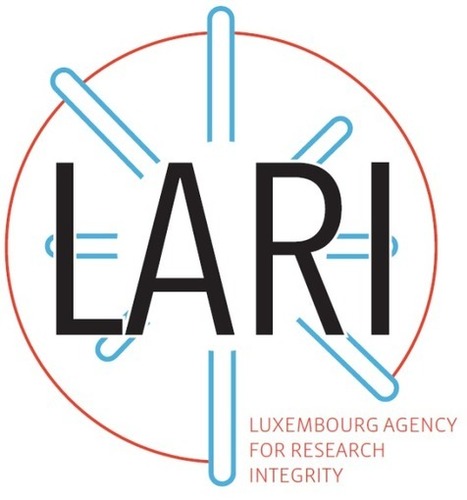


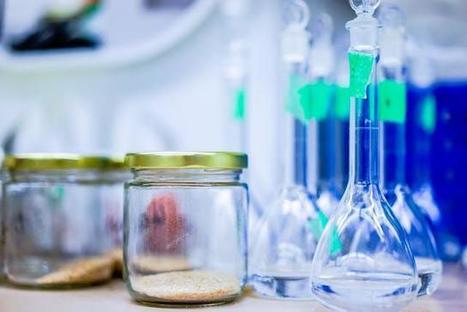
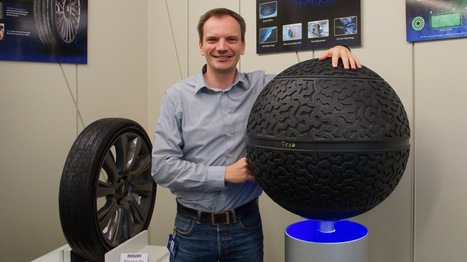
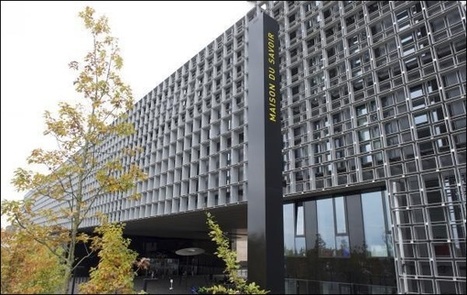
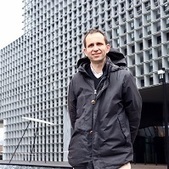

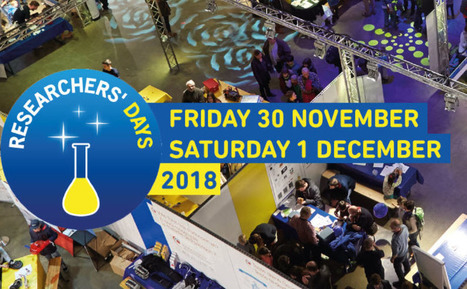
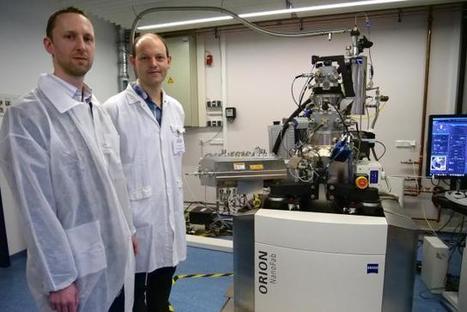
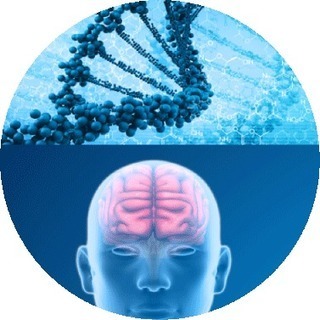
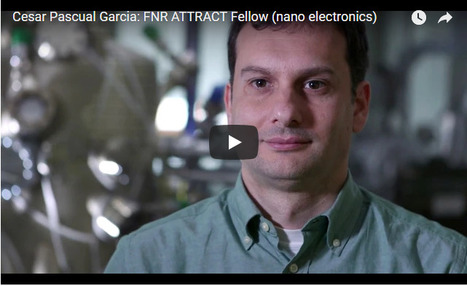
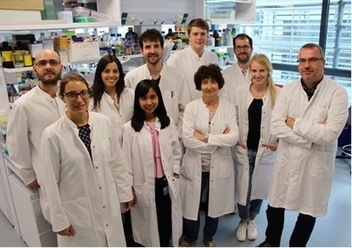
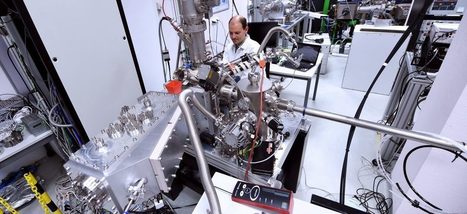

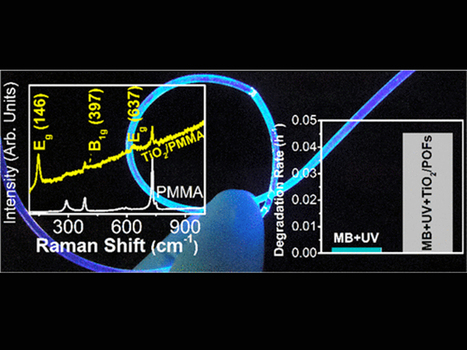
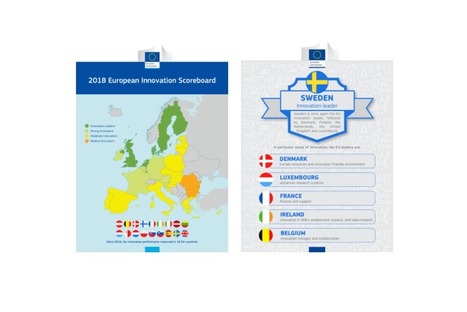
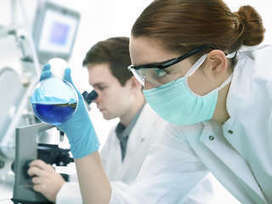
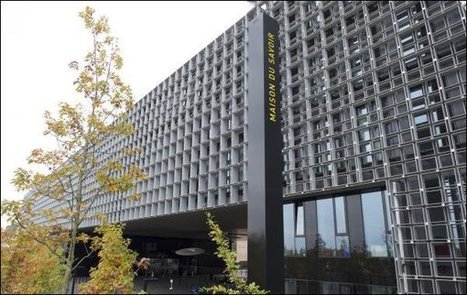
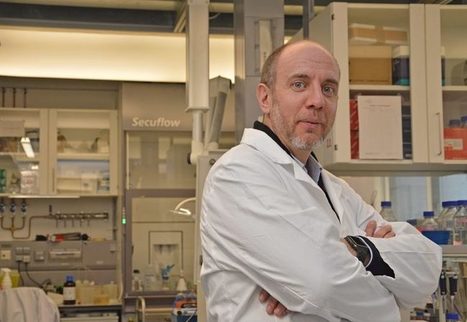
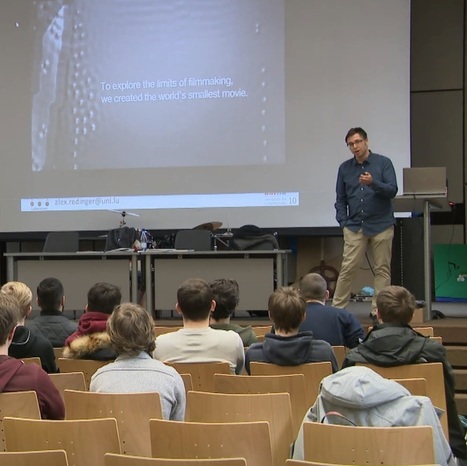
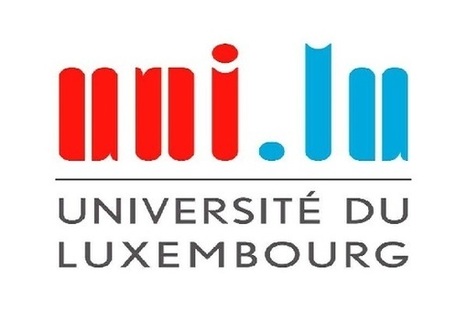
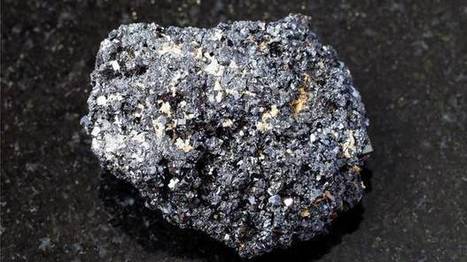


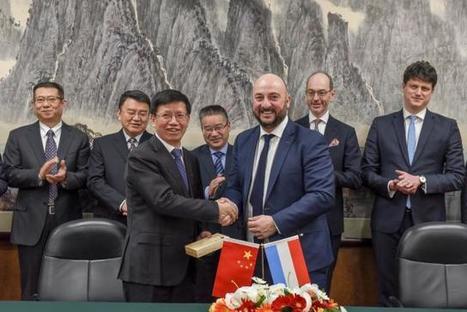
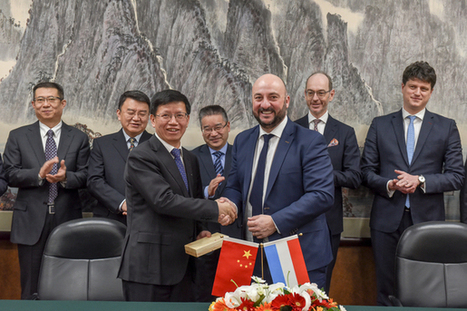





LARI – the Luxembourg Agency for Research Integrity.
Established in 2016, the Luxembourg Agency for Research Integrity (LARI) is the national agency promoting and investigating research integrity in Luxembourg. LARI, a non-profit organization, is a joint venture between the Luxembourg National Research Fund (FNR), the University of Luxembourg, the Luxembourg Institute of Health (LIH), the Luxembourg Institute for Socio-Economic Research (LISER) and the Luxembourg Institute of Science and Technology (LIST). As such, LARI intersects with a variety of research disciplines including medicine, behavioural and social sciences, physical sciences and mathematics, engineering and materials sciences, law, and computing.
The mission of LARI is twofold:
To promote responsible conduct of research;
To ensure an independent inquiry and investigation in cases of alleged scientific misconduct.
How does LARI accomplish its mission? The LARI team uses an innovative approach that blends education, coaching and creative sessions to foster research integrity as a value that is built into research (proactive).
LARI is the go-to organization for questions about research ethics, research integrity, and allegations of research misconduct.
Learn more / En savoir plus / Mehr erfahren:
https://www.scoop.it/t/luxembourg-europe/?&tag=Research